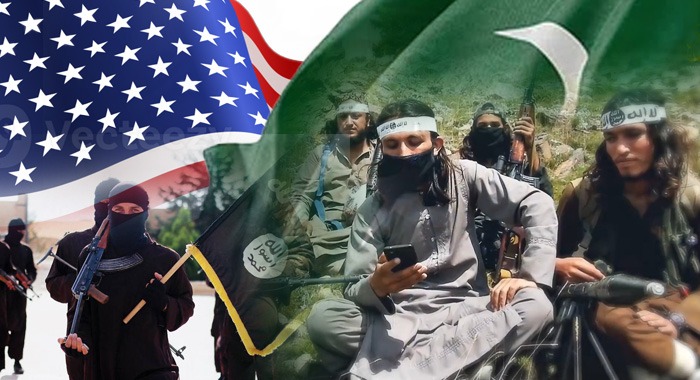The growing threat from terrorist groups like the banned Tehreek-e-Taliban Pakistan (TTP), or Fitna al-Khawarij as declared by the state, and Islamic State–Khorasan Province (IS-KP) is pushing Washington and Islamabad toward a renewed, more pragmatic security partnership. A recent think tank report warns that these groups, operating along Pakistan’s western frontier and inside Afghanistan, pose a serious danger not just to regional stability, but also to global security, given Pakistan’s nuclear capabilities.
Despite tensions and diverging interests in the past, both the United States and Pakistan share a critical interest in combating terrorism. The report stresses that while American counter-terrorism priorities in the region primarily centre on IS-KP and Al-Qaeda remnants, Pakistan remains more directly threatened by the TTP, which continues to launch attacks inside the country and aims to impose a hardline Islamist regime in parts of Pakistan.
The Afghan Taliban’s unwillingness to crack down on TTP operatives, despite pressure from Islamabad, has created new opportunities for US-Pakistan intelligence cooperation. In return for actionable intelligence against IS-KP, Washington could provide Islamabad with targeted support against the TTP, which poses an increasing internal security threat.
The report highlights that Pakistan has already played a role in recent anti-terrorism efforts, including cooperation in the arrest and extradition of a high-profile IS-KP figure, an act acknowledged by President Trump during his address to Congress earlier this year. This moment of recognition signals a shift toward transactional engagement based on shared outcomes rather than mutual suspicion.
At the same time, the rise of groups like IS-KP inside Afghanistan underscores the need for a stable Pakistan, not only to prevent militant spillover but also to ensure that extremist actors do not gain access to nuclear materials. The report warns that allowing militant sanctuaries to persist could significantly raise the risk of nuclear insecurity, a long-standing US concern.
Further, as both countries re-calibrate their regional strategies amid growing India-China rivalry and post-US withdrawal instability in Afghanistan, the report urges Washington to treat Pakistan not as a client but as a complex partner. It suggests that security-focused dialogue, especially on counter-terrorism and nuclear safeguards, must be prioritized over traditional aid-based diplomacy.
The think tank concludes that while differences over India, China, and internal governance will persist, counter-terrorism offers a concrete starting point for reviving meaningful engagement. In an increasingly volatile region, it argues, sidelining Pakistan is not an option, especially when extremist groups are exploiting every vacuum.





